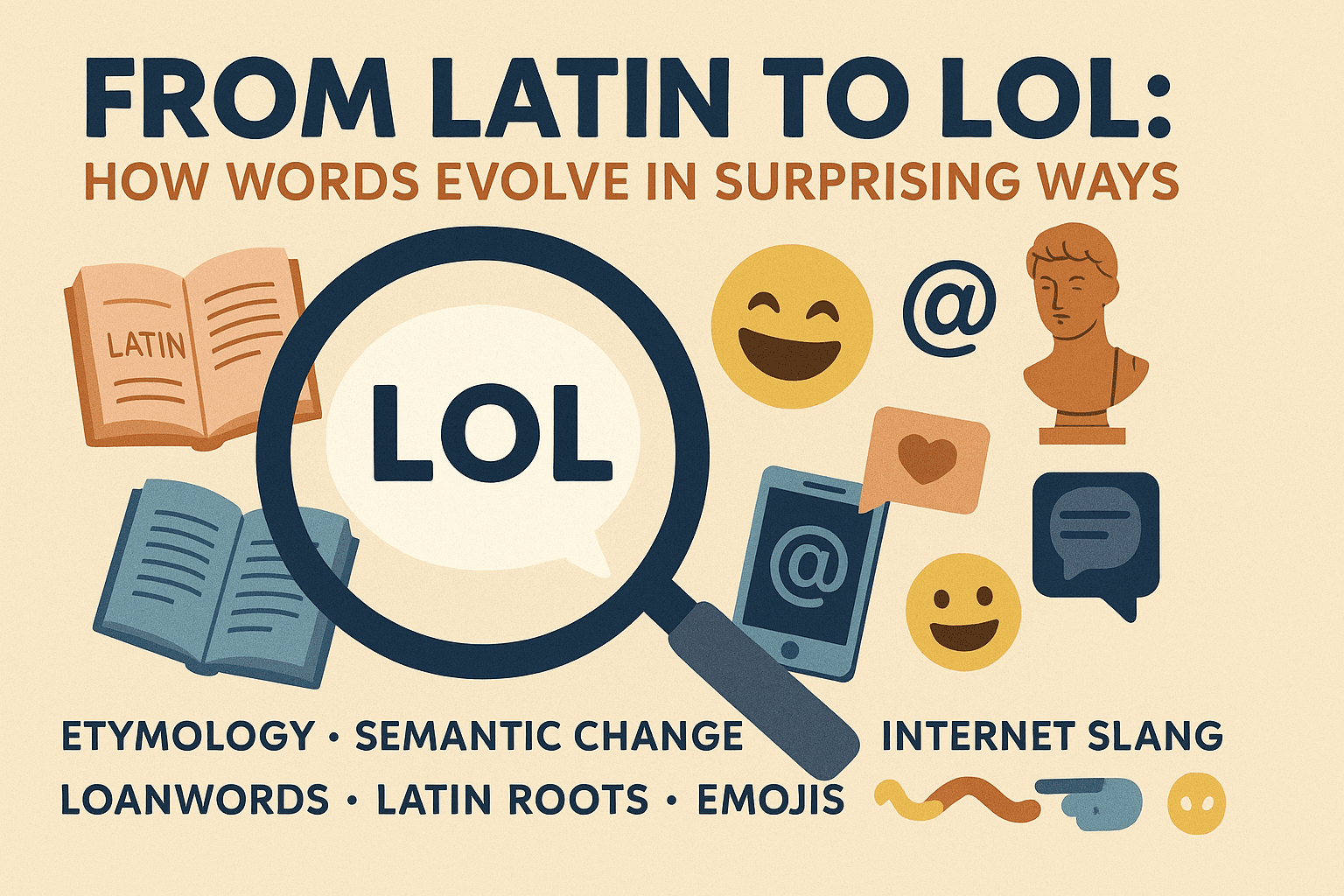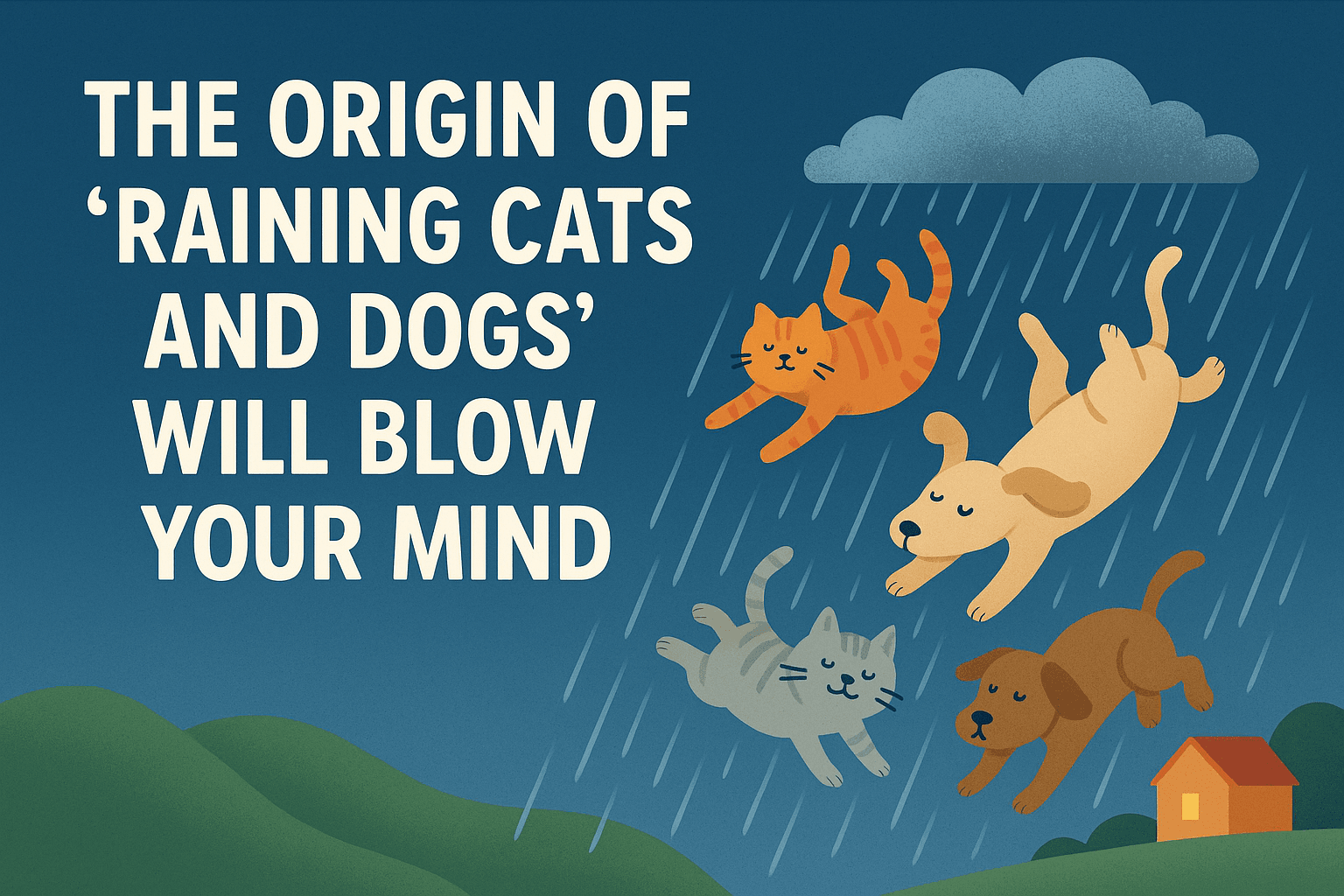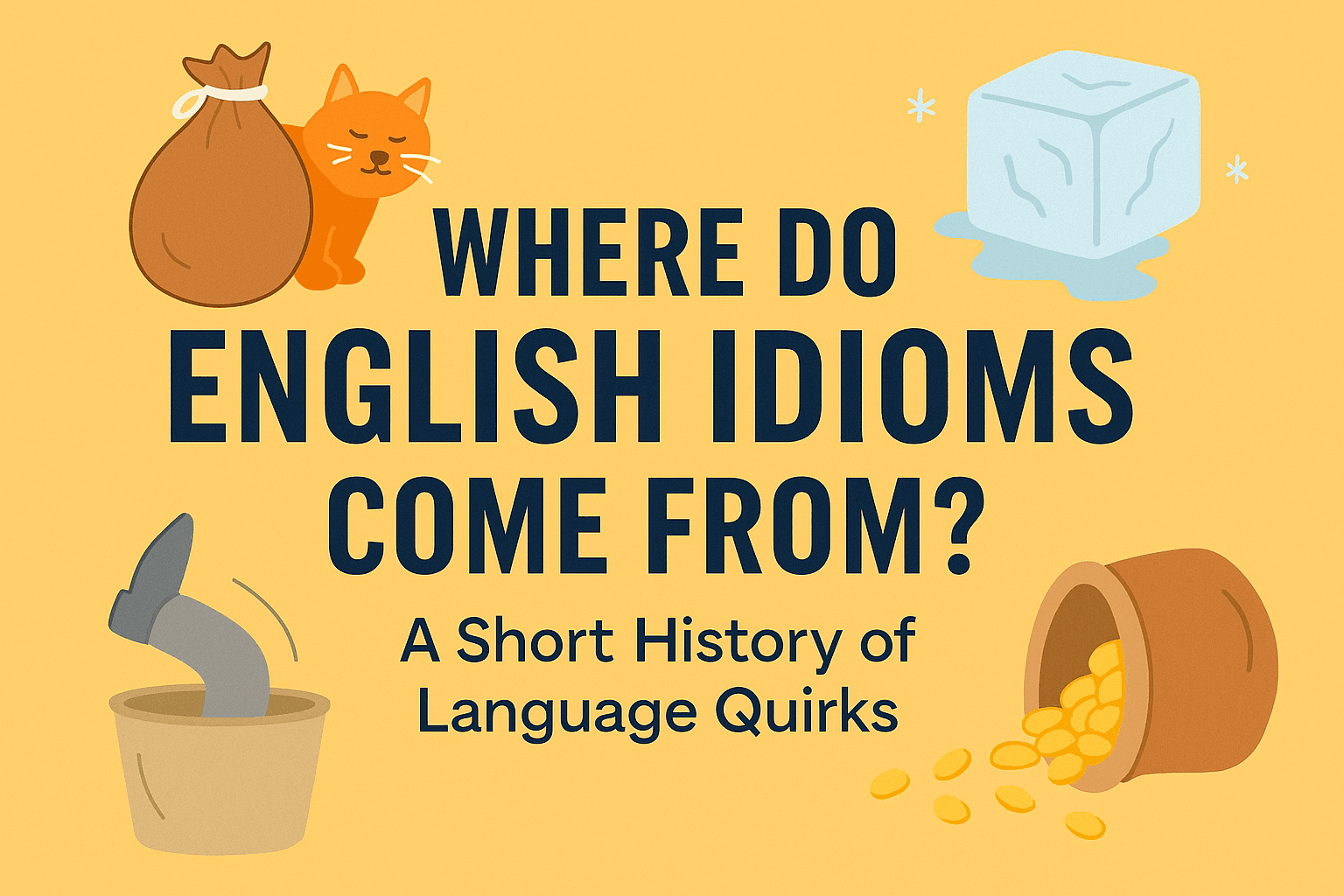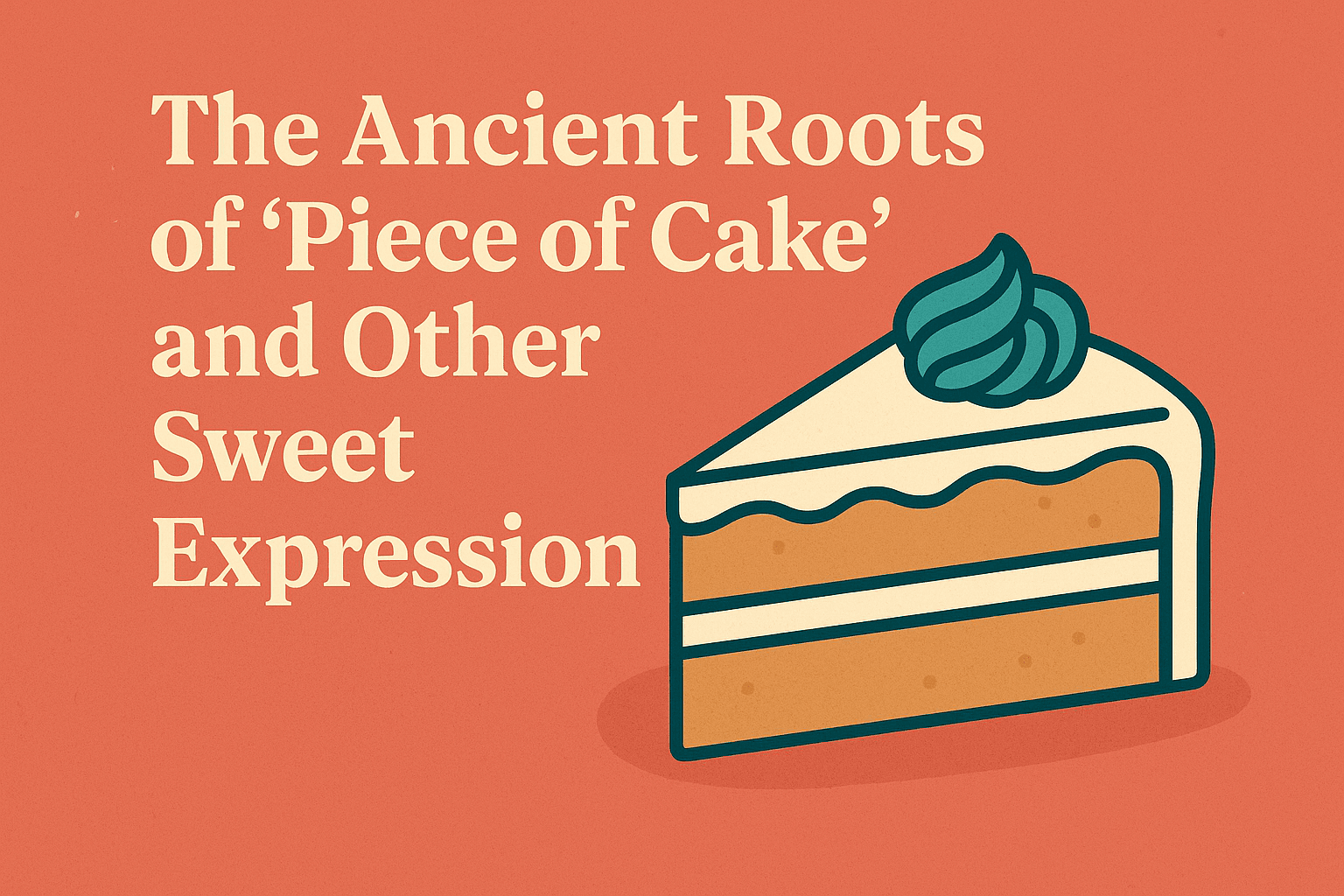Language is like a living organism—it grows, changes, and sometimes mutates in the most unexpected ways. From the formal elegance of Latin to the fast-paced, emoji-fueled shorthand of internet slang, the evolution of words is a fascinating reflection of how we think, live, and communicate.
In this article, we’ll explore how English words have transformed over the centuries—sometimes dramatically—tracing their roots from ancient sources to modern usage, and showing just how unpredictable and playful language can be.
Word Evolution: How It Works
Words evolve due to:
- Cultural shifts
- Technology
- Globalization
- New generations redefining meaning
A word might shift in spelling, pronunciation, meaning, or even part of speech. Over time, some words bear little resemblance to their origins.
From Latin Roots to Everyday English
Many English words have Latin roots, even if they’ve changed significantly.
Examples:
- “Camera” – From Latin camera (meaning “room”). Early cameras were large, dark chambers, hence the term camera obscura (dark room).
- “Manual” – From manus, meaning “hand.” A manual task is done by hand.
- “Liberal” – From liber, meaning “free.” The word has taken on political meanings but still carries traces of its original sense.
🔗 Learn more at Etymonline
Words That Changed Meaning Drastically
Some English words no longer mean what they used to—and their new meanings might surprise you.
1. Awful
- Original: “Full of awe” (inspiring respect or wonder)
- Now: Very bad or unpleasant
2. Nice
- Original (13th century): Foolish or ignorant
- Now: Kind or pleasant
3. Girl
- Original: Referred to a young person of either sex
- Now: Specifically a female child or young woman
These shifts often occur slowly, shaped by social usage, literature, or media.
Internet Slang: The New Frontier of Word Evolution
In recent decades, the internet has accelerated linguistic evolution like never before. New words emerge—and go viral—almost overnight.
Examples:
- LOL – “Laugh Out Loud”; now used to soften tone or signal friendliness
- Ghosting – Cutting off contact without explanation
- Stan – To obsessively support someone (from Eminem’s song Stan)
- Flex – To show off
- Tea – Gossip or juicy news
These aren’t just slang—they’re new meanings and functions for old terms, often spread globally through memes, TikTok, and Twitter.
🔗 See more examples at Urban Dictionary
From Verb to Noun (and Vice Versa)
English is particularly flexible about turning nouns into verbs:
- Google → “I’ll google it.”
- Friend → “She friended me.”
- Adult → “I can’t adult today.”
This process, called functional shift, makes English adaptive and creative, allowing speakers to invent new usages without inventing entirely new words.
Loanwords: Imports That Stick
English has borrowed heavily from other languages, especially Latin, French, and German.
Common Loanwords:
- Déjà vu (French) – Already seen
- Kindergarten (German) – Children’s garden
- Piano (Italian) – Soft
- Tsunami (Japanese) – Harbor wave
- Emoji (Japanese) – Picture character
These words often become so integrated that we forget they started elsewhere.
Semantic Bleaching: When Words Lose Strength
Some words get weaker over time—this is called semantic bleaching.
Examples:
- Literally – Now often used to mean “figuratively” (e.g., “I literally died laughing.”)
- Awesome – Used to mean “awe-inspiring”; now means “cool” or “good”
- Amazing – Originally meant “causing astonishment”; now often means “nice”
The word still functions, but the emotional intensity is diluted.
Emojis and the Return to Visual Language
Oddly enough, the rise of emojis signals a return to the pictographic roots of communication, much like Egyptian hieroglyphs or early Chinese characters.
We’re now communicating with:
- 🧠 Visual cues
- 🤔 Emotional shorthand
- 📱 Cross-language symbols
While not words in the traditional sense, emojis influence how we read tone, and often replace entire words in digital communication.
Final Thoughts: Language Will Always Change
From Latin to LOL, language evolves because humans evolve. Our tools, values, and ways of interacting are always shifting—and our words follow.
Some changes are slow and subtle. Others, like internet slang or meme culture, happen overnight. But all of them reflect the creativity, adaptability, and humanity behind how we speak.
So whether you’re quoting Cicero or texting “BRB,” remember: you’re part of a long, surprising journey through language.




